Being interviewed remotely is becoming the norm
As the world moves on following the COVID-19 pandemic a very high percentage of work now involves some sort of remote element. Many companies are working to a hybrid model and an increasing number are moving to even more flexible work models involving a high degree of remote work. More than that employers are finding that remote interviews are shortening recruitment times and improving the interviewing process. More than 75% of employers now say they are using remote interviews.
Understanding how to approach and excel at a remote interview has become an essential skill, so it’s important to understand what is required. Lots of remote jobs are being advertised if you know where to find them.
What should I wear?
In the traditional, office-based world the answer is definitely business formal smart clothes. This business dress code isn’t mandatory any more for an on-line interview so I’d recommend toning it down a little. For a start, in a remote interview, you only have to worry about what you’re wearing above the waist. I’d recommend a smart shirt for a man or shirt or blouse if you’re a woman. If you feel more comfortable in a jacket then that’s fine, but I’d definitely ditch the tie. It is important you look clean and presentable and do remember to run a comb though your hair!
Find a quiet place
If you have a home office then make sure it looks clean, tidy and professional and find a way of letting the interviewers know that you’re sitting in your home office where you are able to work undisturbed. All employers should be concerned that you have a suitable space to work in. The employer may have health and safety concerns as well as wanting to be assured that disruptions and noise are not going to degrade your productivity.
It’s not a show stopper if you don’t have an office but make sure you tell everyone in the house that you’re going to be interviewed, to keep disturbances to a minimum. Think about where you’re going to sit and minimise the distractions behind your face. You want the interviewers concentrating on you, not on your kids playing behind you or your underwear on the clothes dryer at the back of the room.
You might want to download a free copy of Krisp. It’s a noise suppressing app that really does work, so if next door start their building project or guys start digging up the road in the middle of your interview it will cut all of that out and they’ll only hear you not the background noise.
Look your best
Fix your hair and face, plus very importantly sort out the lighting. Most people look pretty ghastly when lit from the side. Face-on lighting makes you look a whole lot better and has a tendency to mask your imperfections (assuming you have any!). Also aim to have the camera at eye level. Below doesn’t really work unless you like the Bohemian Rhapsody effect and above doesn’t tend to present the best image of you either. If the camera is on top of the screen and hard to move, this may mean you moving instead by changing your chair adjustment. This may all sound a bit facile but don’t underestimate it. If you look good then you feel good and in most video conferences you’re going to be faced with looking an image of yourself on the screen throughout the interview. If you find this unnerving then a lot of video conference packages allow you to turn off the image of yourself – check it out before the interview.
Buy as high quality a camera as you can afford, a clear high definition image is better than a fuzzy one. Good quality cameras are a little more expensive but are vastly superior to the cameras built into laptops and the webcams selling for $30 or less. They will produce good images even in low light, include autofocus, have a wide field of view and are able to zoom in or out without losing quality. The better webcams will have dual microphones and capture good quality sound. If you look on Amazon and you’ll find a huge choice of webcams, but personally I wouldn’t look further than Microsoft, Logitech or Poly and don’t go for the lowest priced models. The Logitech HD Pro Webcam C920 and Logitech C930e 1080P HD Video Webcam are both excellent webcams with good quality microphones or if you prefer Microsoft The Microsoft LifeCam Studio for Business is also a high quality piece of kit.
These better cameras will also cope better with low or imperfect lighting and will auto-adjust to lighting conditions. You may have to bear the sight of your wrinkles, grey hairs or acne in a little more focus than you’d like, but it still looks better than the low res image that you get from the cameras on many laptops.
Test how you, the lighting and the backdrop looks on camera and adjust it until you get it right. If you can’t arrange face-on lighting with natural light by sitting facing a window or existing light source then you can fix this relatively cheaply using LED lighting that you can attach to your screen. These lights work just fine – the YMCRLUX Webcam Light fixes with a sucker to the back of your laptop or if you prefer one that clips to the screen then the Cyezcor Video Conference Light works well too – both sell for around $25.
Compensate for the lack of body language
Ray L Birdwhistell an American anthropologist estimated from his research that 65 percent of communication is done non-verbally and more astonishingly that we can make and recognise around 250,000 facial expressions. Barbara and Allan Pease in their excellent book The Definitive Book of Body Language further estimated that body language is responsible for between 60 and 80 percent of the impact made in negotiations and that people form 60 to 80 percent of their first impression about a new person in less than four minutes.
Body language transmits very imperfectly over a video link, so it’s important to compensate by getting your points across clearly. Ask if what you said was clear and if there are any questions and don’t worry about asking for clarifications on what the interviewers say.
Allow for scheduling
As remote jobs become more international you may end up having an interview at a strange time for you. If it’s earlier in the morning than you usually get up then make a point of getting out of bed really early to give yourself a chance to get your brain into gear and to look presentable. While the adrenaline will probably be pumping for an early morning interview that might not be the case for one late in the evening where your mind and body may well be winding down. Sports people playing late at night to satisfy television demands reschedule their days for a few days so they’re alert later in the day. If this is an important interview you might consider doing the same.
The interview
To some extent a remote interview mirrors a face-to-face one but there are some important differences. Know your job history, why you want to move, research the company you’re hoping to join, rehearse your answers to what are your strengths and weaknesses and where you see your career in 5 years’ time, as normal, but there are a few extra tips on how to pass a remote interview.
Make sure you get across that:
You’re a self starter and are self-organised
Self-motivation and initiative are important qualities to get across. You’re out there in the big world, not just five minutes’ walk down the office, so the last thing a prospective employer wants is someone who needs to be spoon-fed every item of work.
Anyone who has worked remotely quickly appreciates how easy it is to get distracted and disappear down an internet fuelled rabbit hole. Let employers know that you maintain a to-do list and both prioritise items on it and use it to evaluate how well you’ve done at the end of each day.
You’re a good communicator
In remote work everyone has to try a bit harder to communicate. You don’t want to come across as someone who really wants to work remotely because you don’t like people (Ok it might be true…just don’t let anyone know!).
In particular written communication has become very important for people hiring remote employees given communication happens increasingly through e-mail and instant messaging. You may get tested on this at the interview, in fact you may have already been tested if you were asked to fill in an application form. One of the ways many employers filter new applicants is to assess the clarity of their answers on their application form. Employers won’t be looking for perfect spelling, grammar and punctuation but will want to see that you can communicate clearly in writing, showing clear expression of ideas and logical presentation.
You’re flexible and adaptable
You’ll need to make sure that your prospective employer knows that you’re flexible, adaptable and open to change. Bear in mind that most employers haven’t worked out how to work remotely, they’ve just transferred work to their employee’s homes in response to a crisis. Things will change once they realise that remote work is different and needs to be set up and managed differently. You’ll need to be able to adapt.
You understand the lifestyle and pressures of working remotely
You’ll need to convey that you can handle the lifestyle and attendant pressures of remote work. If you’ve done it before and can provide references to prove it then all the better.
You’re comfortable with the technology
You need to emphasise that you’re comfortable using remote work tools and technology and that’s not just saying you’ve used Zoom for your Yoga lessons! There are a wealth of messaging, e-mail, video conferencing, meeting, staff monitoring and staff communication, project management and workflow tools as well as wikis and knowledge bases. You’ll find reviews of some of these in our reviews section, otherwise at the very least Google them so you know what they are.
And make sure you ask
And there are some questions you should ask at your remote interview. Ask about their support for remote workers and if they have an established onboarding process. Teamwork and belonging are so important if you’re going to work remotely. Ask how your prospective employer encourages each. Some employers will provide what you need for a remote office, some have a policy of reduced pay for remote workers. Try to find out which will apply.
If you get as far as a job offer, you could ask if they have other remote workers who you could talk to before accepting the offer. Find out what tools they use, how you will be managed and if they feel part of a team.
A list of the questions that are typically asked at a remote interview
We’ve covered most of these already, but here are the typical questions you are likely to get asked:
- Where do you prefer to work and why? For you, how does working remotely compare with working in an office?
- Have you ever worked remotely? If so how did it go?
- What challenges will you face working remotely, and how do you think you’ll deal with them?
- Do you have a space at home that would work as your home office? Is it a quiet environment free from distractions?
- Have you ever worked in a distributed team and if so how did it go? If not what do you think the challenges would be?
- What remote work tools have you worked with?
- How do you communicate in a remote team?
- When working remotely how do you stay focused on work?
- When you’ve finished the day, how do you switch off from work?
Prepare and rehearse your answers.
And after the interview….
If they like you, some employers will put you through some final tests. I know of one who sets up an assignment that requires interaction with the team you’ll be joining spread over a few days. All of the interaction is via Slack so the team can see how well you communicate and how well you’ll fit in. Another sends out a written test via e-mail to assess both the quality of their written communication and how the applicant thinks.
So good luck, go for it and I hope this helps you pass a remote interview and get your dream job.
Gren Gale is a consultant and author specialising in remote work and project management.
The Remote Project Manager and Remote Work The New Normal by Gren Gale address all of these issues and more
Articles and reviews on this site are written from an unbiased viewpoint. We only review products which are relevant to Remote Work or Project Management and ones we believe in. Once this article on how to pass a remote interview was written we looked to see if some of the links could generate affiliate income. It won’t make us rich but it helps pay the rent!


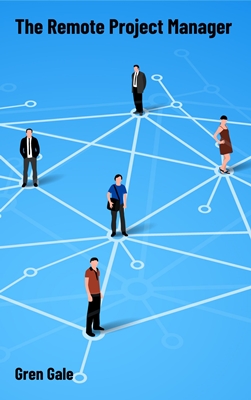
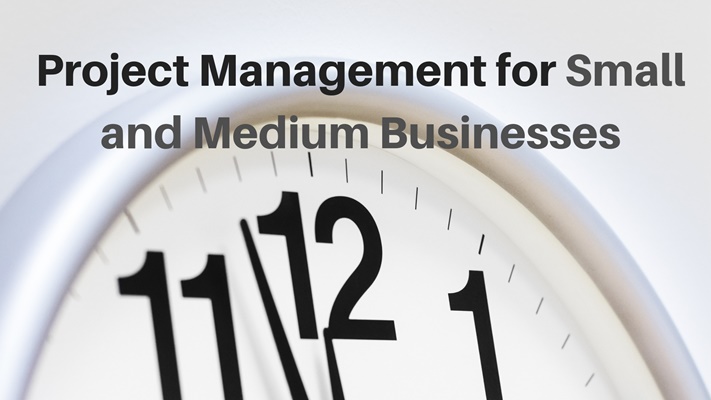
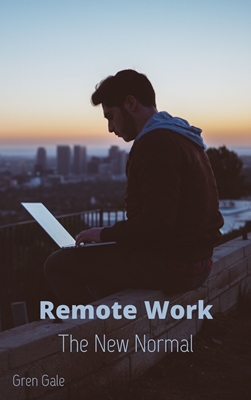
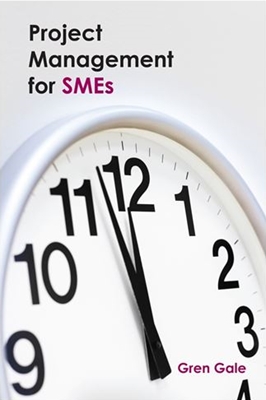
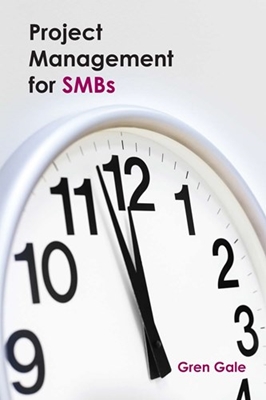
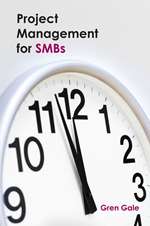
Recent Comments